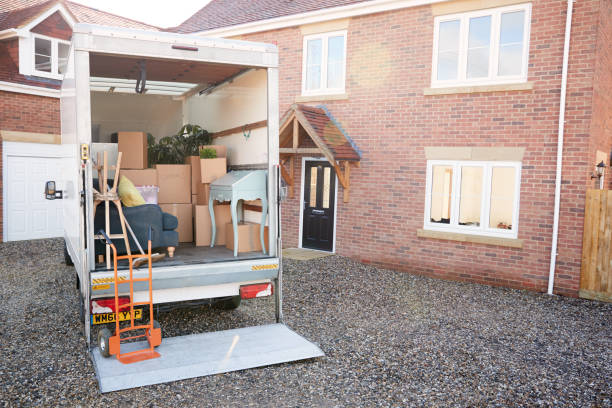Moving to France: Crucial Details for a Successful Transition
Moving to a new country is a significant life event filled with anticipation and excitement. For many, France stands out as a destination due to its rich history, diverse landscapes, and vibrant culture. As you embark on this journey, understanding the logistics of moving and removals to France is crucial to ensure a smooth transition and a successful relocation.
Preparing for Your Move
The first step in your relocation process is to gather all necessary documentation. This includes your passport, visa applications, work and residence permits, birth certificates, marriage licenses, and medical records. Additionally, preparing a detailed inventory of all belongings you plan to move is wise. This will aid in both obtaining moving quotes and passing through customs. Budgeting for your move is another critical element—consider all possible expenses, including moving services, travel costs, temporary accommodations, and emergency funds.
Choosing the Right Removal Company
Selecting the right removal company is pivotal in moving. Look for companies with extensive experience in international relocations to France. They should offer a range of services tailored to international moves, such as packing, storage, insurance, and customs clearance. Check their reputation through reviews and ratings on independent websites, and ensure they have the appropriate licensing and insurance to operate internationally.
Packing Tips and Organization
Efficient packing is essential for a stress-free move. Start packing well in advance, sorting items by room and usage. Fragile items require special attention and should be packed with ample protective wrapping. Label each box clearly with its contents and the room it’s destined for in your new home. This will help movers place boxes in the correct rooms and simplify the unpacking process.
Legal and Administrative Requirements
Navigating the legal and administrative framework is often the most complex part of moving to France. For EU citizens, moving to France comes with fewer hurdles, but non-EU citizens will need to secure a long-stay visa that corresponds with their reason for moving, such as family, work, or study. Upon arrival, you must validate your visa and apply for a residence permit. Understanding French customs regulations is also essential to avoid unexpected fees or delays with your shipment.
Finding a Home in France
Deciding where to live in France can vary greatly depending on your lifestyle preferences and needs. Research different regions and cities to understand local housing markets, cost of living, and community life. Whether renting or buying, consider factors like proximity to work, schools, public transport, and local amenities. Utilising a local real estate agent can provide insights into the housing market and help navigate the legalities of renting or buying property in France.
Setting Up Utilities and Essential Services
Setting up essential utilities is your next task once you’ve secured a place to live. In France, you may need to provide proof of address to set up services like electricity, gas, water, and internet. Shop around for service providers to get the best rates and packages. Setting up these services can sometimes be bureaucratic, so patience and preparation are key.
Financial Considerations
Opening a bank account in France is crucial for managing your finances locally. This can usually be done with proof of residence, identification, and a deposit. Familiarise yourself with the French banking system and available services to effectively manage your day-to-day financial transactions. Understanding local taxes, such as income tax and housing taxes, will also be important for budgeting purposes.
Cultural Integration
Integrating French culture will enhance your experience and help you feel at home. Learning the French language is fundamental, as it will greatly improve your daily interactions and deepen your understanding of the culture. Familiarise yourself with French etiquette and social norms to smoothly integrate into your new community.
Healthcare System
France’s healthcare system is among the best in the world and is accessible to all residents through state healthcare coverage and optional private insurance. Registering with the local health authority and choosing a primary doctor are important first steps to accessing healthcare services.
Education and Schools
If moving with children, the French education system offers various options, from public schools to private and international schools. Public schools are free and provide a high-quality education, but language may be a barrier initially. International schools can be a good alternative if you prefer education in your native language.
Transportation
Understanding your transportation options is crucial for navigating your new home. France boasts an extensive public transport system, including metros, buses, and trains. If you plan to drive, you may need to exchange your driver’s license for a French one, depending on your nationality.
Networking and Social Life
Developing a social network is key to settling into your new life in France. Engage with local communities, join clubs and groups that align with your interests, and participate in local events. Expatriate networks can also be invaluable for meeting people in similar situations and getting localised advice.
Conclusion
Moving to France is an enriching experience that offers countless personal and professional growth opportunities. By meticulously planning your move, from organising removals to adapting to the local culture, you can ensure a successful transition. Embrace the challenges and opportunities that come with living in France, and enjoy the journey of making it your new home.

